The Ministry of Health recommends measures to prevent and control epidemics during the rainy season.
During and after floods, many microorganisms, dust, garbage, waste, etc. will flow with the water to many places, causing environmental pollution and posing many potential risks of disease.
Furthermore, heavy rains and floods are favorable conditions for bacteria, viruses and disease vectors to grow and cause diseases in humans.
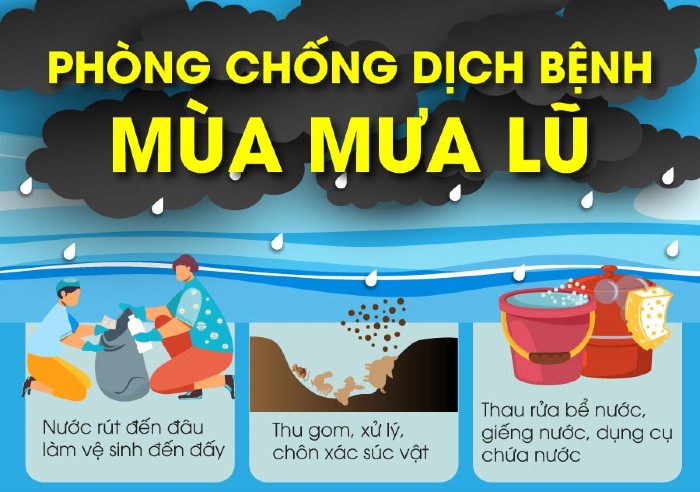 |
| During and after floods, many microorganisms, dust, garbage, waste, etc. will flow with the water to many places, causing environmental pollution and posing many potential risks of disease. |
Common diseases during the rainy season are acute diarrhea, respiratory diseases, eye diseases, skin diseases, dengue fever...
The Ministry of Health recommends that agencies, units and people proactively participate in implementing measures to prevent diseases and epidemics during floods and inundations.
At the request of the Ministry of Health, relevant agencies need to take proactive preventive measures to ensure safety before the rainy season and when floods occur.
Seek information and proactively follow recommendations on safety measures during floods and inundations, accident and disease prevention measures, and food safety measures during storm and flood season from health agencies and authorities.
Ensure safe and hygienic food selection and preparation, eat cooked food and boiled water. Wash hands regularly with soap before and after preparing food, before eating and after using the toilet.
Practice daily personal hygiene, wash your feet and dry between your toes after contact with flood water or contaminated water. Destroy larvae and mosquitoes by covering water tanks and containers, putting fish in large water containers, and removing waste such as bottles, jars, car tires, etc. or natural water holes to prevent mosquitoes from laying eggs.
Use mosquito nets while sleeping, even during the day. Clean water tanks, wells, and water containers and use chemicals to disinfect drinking water and domestic water according to the instructions of medical staff.
Clean up as the water drains, collect, process and bury carcasses according to the instructions of medical staff. If there are signs of suspected infection, go to the nearest medical facility for examination and treatment.
During the rainy season, common diseases include: Diarrhea caused by E. coli bacteria, cholera, dysentery, typhoid, and hepatitis A. Diseases are caused by using unsanitary water sources and contaminated food.
To prevent disease, people need to ensure proper treatment of drinking water, environmental sanitation and personal hygiene. Follow the principle of "Eat cooked food, drink boiled water", ensuring food safety and hygiene. Ensure enough clean water for eating, drinking and daily activities. Wash hands with soap before eating and after using the toilet. Properly handle feces, waste, garbage and dead animals.
Take or inject vaccines when indicated for diseases for which vaccines are available. Respiratory diseases are also common during the rainy season such as colds, flu, sore throat, and respiratory infections.
For respiratory diseases, people need to keep warm in cold weather, especially children and the elderly. Limit contact with people showing signs of flu or respiratory infections. Ensure adequate nutrition. Timely diagnosis and treatment to limit complications and death.
To prevent eye diseases such as pink eye, blepharitis, and lacrimal gland inflammation, the Ministry of Health recommends that people do not wash their faces or bathe with dirty water. Do not let children bathe or play with dirty water.
Wash your hands with soap and clean water. Do not share towels or wash basins with someone who has pink eye.
Apply eye drops (Chloramphenicol 0.4% or Argirol 1%) to all those at risk of exposure to contaminated water. Take care to kill flies as flies can transmit pink eye from sick to healthy people.
For skin diseases, the Ministry of Health recommends common diseases such as foot and hand fungus, folliculitis, ringworm, pityriasis versicolor, scabies, and acne.
To prevent disease, people should not bathe or wash clothes with dirty water. If disinfected well water is not available, alum must be added or the water must be filtered with sand.
Do not wear wet clothes. Do not swim, bathe or play in flood water because the water is very dirty, not only causing skin diseases but also causing digestive diseases due to swallowing dirty water.
Avoid wading in dirty, stagnant water. If you must wade in dirty water, rinse immediately with clean water and dry thoroughly, especially between fingers and toes.
To prevent mosquito-borne diseases such as dengue fever, you need to sleep under a mosquito net and wear long clothes to prevent mosquito bites even during the day.
Kill mosquito larvae, treat water containers to prevent mosquitoes from laying eggs. Spray insecticide in high-risk areas or areas with dengue fever outbreaks. If you have a fever, go to a medical facility immediately for examination and treatment advice. Do not self-treat at home.
Source: https://baodautu.vn/bo-y-te-khuyen-cao-bien-phap-phong-chong-cac-loai-dich-benh-mua-mua-lu-d225599.html


![[Photo] Prime Minister Pham Minh Chinh receives United Nations Secretary-General Antonio Guterres](https://vphoto.vietnam.vn/thumb/1200x675/vietnam/resource/IMAGE/2025/10/25/1761390212729_dsc-1484-jpg.webp)
![[Photo] Prime Minister Pham Minh Chinh and United Nations Secretary-General Antonio Guterres attend the Press Conference of the Hanoi Convention Signing Ceremony](https://vphoto.vietnam.vn/thumb/1200x675/vietnam/resource/IMAGE/2025/10/25/1761391413866_conguoctt-jpg.webp)
![[Photo] National Assembly Chairman Tran Thanh Man receives United Nations Secretary-General Antonio Guterres](https://vphoto.vietnam.vn/thumb/1200x675/vietnam/resource/IMAGE/2025/10/25/1761390815792_ctqh-jpg.webp)




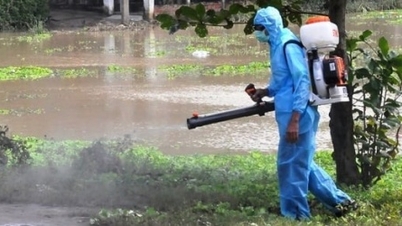
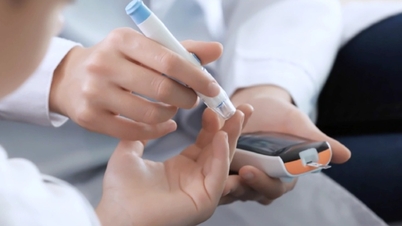




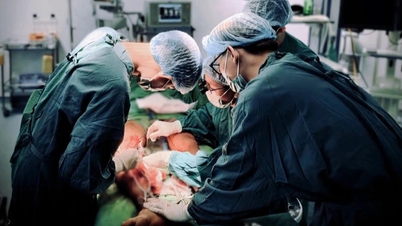
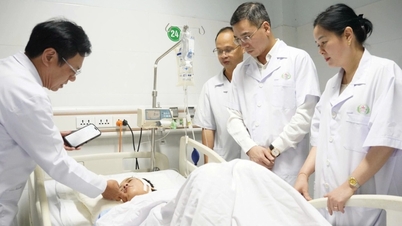
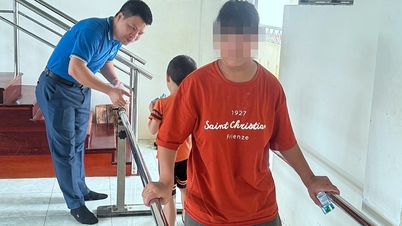










![[Photo] General Secretary To Lam meets with General Secretary and President of Laos Thongloun Sisoulith](https://vphoto.vietnam.vn/thumb/1200x675/vietnam/resource/IMAGE/2025/10/25/1761380913135_a1-bnd-4751-1374-7632-jpg.webp)










































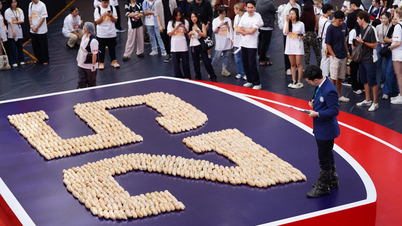
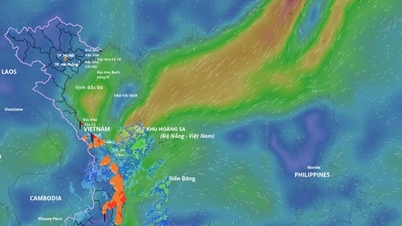





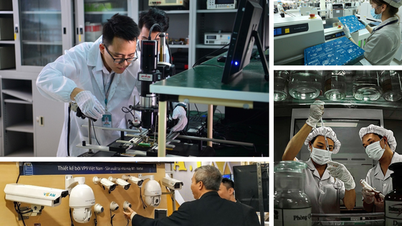


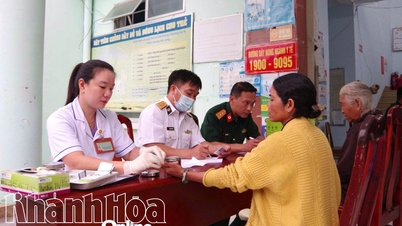



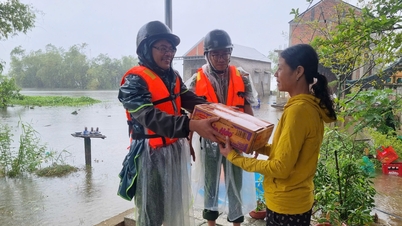



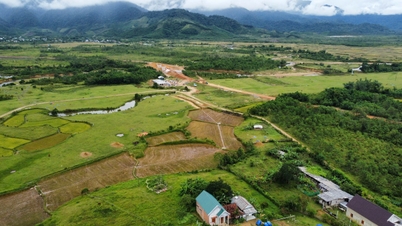












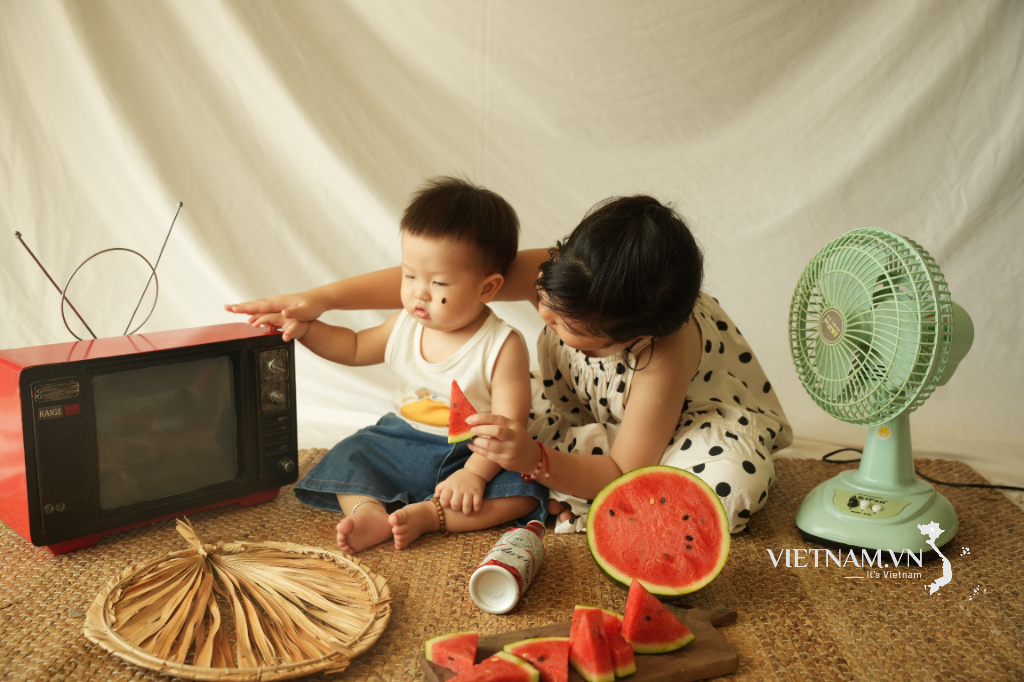



Comment (0)